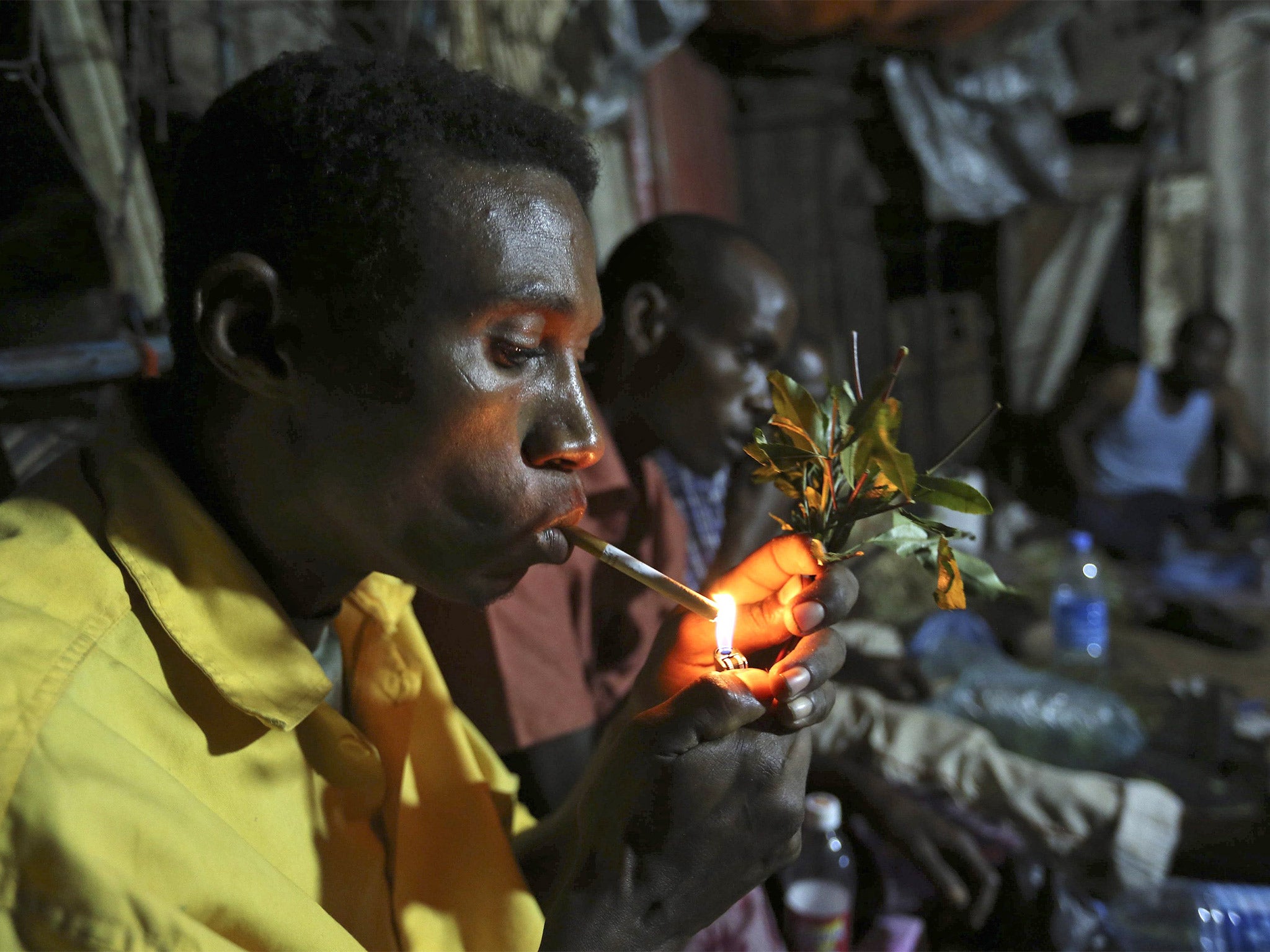How Britain’s ban on khat created a supply glut in Somalia
Connoisseurs are delighted, but exporters in Kenya say the ban has slashed their profits

Your support helps us to tell the story
From reproductive rights to climate change to Big Tech, The Independent is on the ground when the story is developing. Whether it's investigating the financials of Elon Musk's pro-Trump PAC or producing our latest documentary, 'The A Word', which shines a light on the American women fighting for reproductive rights, we know how important it is to parse out the facts from the messaging.
At such a critical moment in US history, we need reporters on the ground. Your donation allows us to keep sending journalists to speak to both sides of the story.
The Independent is trusted by Americans across the entire political spectrum. And unlike many other quality news outlets, we choose not to lock Americans out of our reporting and analysis with paywalls. We believe quality journalism should be available to everyone, paid for by those who can afford it.
Your support makes all the difference.“The president has arrived, the president has arrived,” chant youths in Mogadishu’s Beerta Khaatka market, as armed men in trucks mounted with machine guns escort lorries with horns blaring through the throng.
The joking salutation is not for Somalia’s president, but hails white sacks brimming with leafy sprouts of khat, the narcotic shrub chewed across the Horn of Africa and Yemen in a tradition dating back centuries, which has recently been banned in the UK.
The sight of young men with rifles slung over their shoulders and green stalks of khat dangling from their mouths is emblematic of the Somalia of recent decades, where Islamist rebels and warlords have fomented a culture of guns and violence.
Grown on plantations in the highlands of Kenya and Ethiopia, tons of khat, dubbed “the flower of paradise” by its users, are flown daily into Mogadishu, to be distributed to markets across Somalia.
Britain, whose large Somali community sustained a lucrative demand for the leaves, banned khat from July. This prohibition jolted the khat market, creating a supply glut in Somalia and pushing down prices, to the delight of the many connoisseurs of its amphetamine-like high.
“Those who exported to London have now made Mogadishu their khat hub,” said Dahir Kassim, who works for a trader in the capital.
The price of the cheap Laari khat popular in the impoverished country has halved to about £6 per kg since Britain outlawed the stimulant.
Before the UK ban, Mohamed Khalif, a 27-year-old mason’s assistant, could only afford to chew once a week. “Now I chew daily and my problems are over,” said Mr Khalif, blissfully.
But khat exporters in Kenya, where the cash crop bolsters the local economy, say the UK ban has slashed their profits.
“Britain has made our khat business useless,” said Nur Elmi, a khat trader in Nairobi. “They cannot afford to buy it all (in Somalia), so we sell it at throwaway prices,” he said.
Reuters
Join our commenting forum
Join thought-provoking conversations, follow other Independent readers and see their replies
Comments